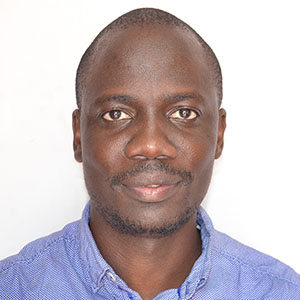Joseph Wasswa
Joseph Wasswa is a School of Engineering Distinguished Postdoctoral Fellow whose research converges at the nexus of experimental and computational methodologies, where the overarching goal is to amalgamate analytical chemistry with computational tools, ultimately advancing our understanding of how contaminants undergo environmental fate and transformation. His doctoral research included studies of dissolved organic matter in lakes in New York’s Adirondacks Mountains, where increased “browning” has been observed due to climate change. Joseph also studied concentrations and patterns of synthetic trace organic contaminants, such as pesticides and personal care products, in surface and drinking water in Kampala, Uganda. As a postdoctoral fellow, Joseph is exploring data-driven predictive chemistry for informing the transformation, fate, and properties of environmental contaminants. Currently, he is carrying out two studies: 1) aims to provide insights into physicochemical properties and environmental fate of molecular compounds using graph neural networks and descriptor molecular representation-based machine learning models, and 2) combines high-resolution mass spectrometry and network analysis computational-based tools to elucidate reaction kinetics and mechanisms of environmental contaminants. His research could have profound societal ramifications because the data, tools, and knowledge he develops could lead to sustainable technologies, solutions, and strategies that can help in environmental protection.
